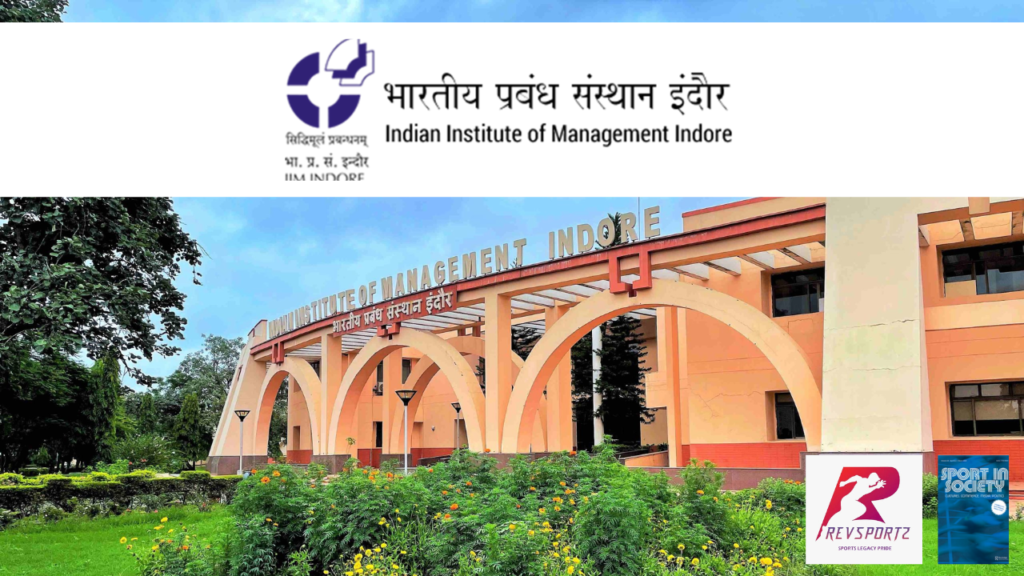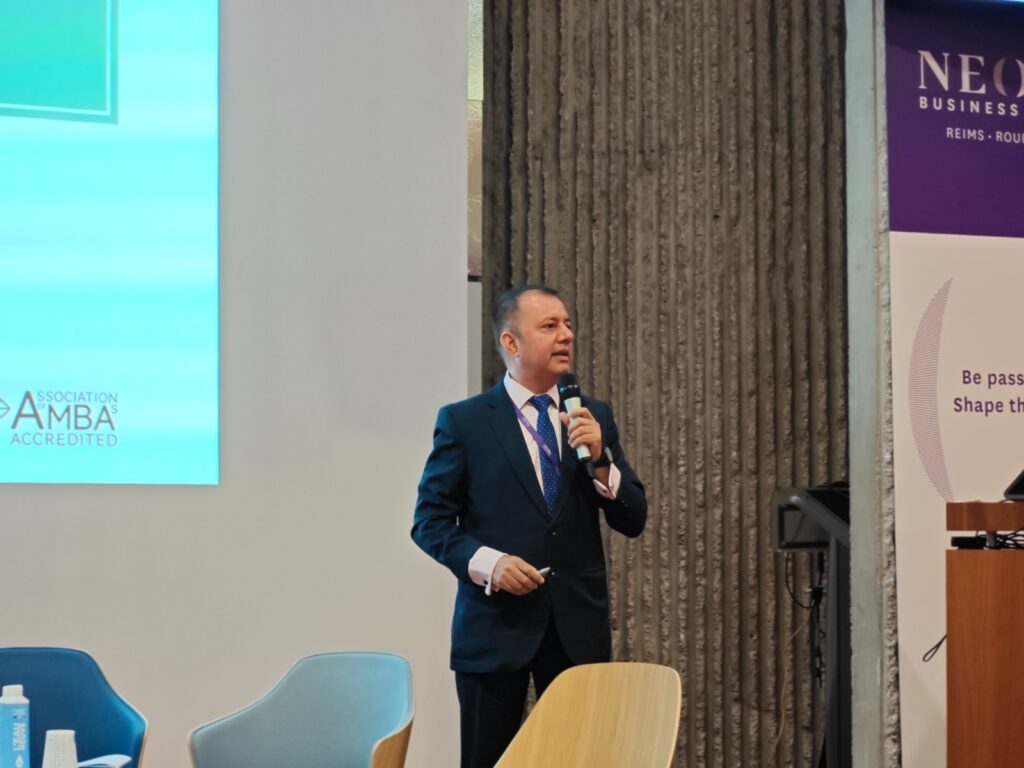
Call for papers for the 2nd Sport and Business Conference 2.0
(Hosted by the Indian Institute of Management, Indore, India)
October 9th and 10th 2025
Theme: Is India ready to host the 2036 Olympics? Challenges faced by emerging countries in bidding to host mega sports events
On the back of an extremely successful 1.0 Sports and Business conference held in 2024 in France, between the Paris Summer Olympics and the Paralympics, we are excited to announce the next conference, 2.0, to be hosted by the Indian Institute of Management Indore, India, on October 9th and 10th, 2025.
Rationale and Reasoning:
Hosting the Olympic Games is a source of pride for a country and its citizens because it symbolises the nation’s enthusiasm for sports and, to an extent, its economic stature. Developed nations have hosted it in the past, and lessons could be learnt. In a way, for emerging economies, hosting the Olympics or their relevant legacy thereafter would not be the same as that of developed nations. While emerging economies constantly battle economic development, hosting the Olympics is an ambitious move. Nevertheless, emerging economies are keen to host the Olympics, as a way of showcasing their economic achievements, diplomatic status and soft power (Cornelissen, 2010; Grix & Lee, 2013).
That said, hosting the Olympics has its pros and cons. Some key legacy focus areas have been identified by Knott & Tinaz (2022) as social development, the economics of tourism, image and branding, infrastructure and urban development and mainly, sport development. When South Africa hosted the FIFA World Cup in 2010, the country witnessed some level of boost in their economy and employment. Also, it was a pride for the African continent rather than just South Africa. However, investments in infrastructure could probably not pay off as much after the event. For example, Alm et al. (2016) learnt that after such mega-events, privately owned stadiums are better used than public ones. The study also alerted us to the fact that stadiums with higher capacity have higher utilization, and stadiums in nations with lower corruption are used better. Temporary employment that was created during the time of construction will see a decline after the games. Therefore, how should governments deal with such economic fluctuation? This is significant for emerging economies wanting to bid for the Olympics, as billions of dollars will need to be pumped into planning, bidding and organizing the Olympics.
The case of India’s 2036 Olympics bid:
India has previously hosted a few mega sports events in the past, such as the Commonwealth Games in 2010 and the Asian Games in 1951 and 1982 (Wenao, 2024). Smaller-scale events such as the Hockey and Cricket World Cups add to these experiences. However, the Olympics is huge. Organising such a large-scale event requires huge investments in infrastructure, public health measures and security, including educated and trained personnel, to name a few (Yu, Klauser & Chan, 2009). The 2010 Commonwealth Games (CWG) hosted in Delhi faced setbacks in arrangements made at the athletes’ village, construction of stadiums, and health and safety, to name a few. However, the Indians are largely optimistic about successfully hosting the 2036 Olympics (Lu, 2023). The hiccups faced in CWG 2010 could be considered as learnings in planning, bidding and organising the 2036 Olympics.

India is yet to announce the location for hosting the games. Speculations are that it could be in Ahmedabad, the state of Gujarat, home to prominent Indian billionaires and the Prime Minister, Narendra Modi. Moreover, the Gujarat Olympic Planning and Infrastructure Corporation is also underway with a $710 million budget (The Economic Times, 2024, Nov 24). The IOC will also not evaluate the location’s viability until a formal letter of intent has been received from the host city. If Ahmedabad is to be considered as the host city, hotels need to be constructed at a fast pace, and a matter of concern is also whether these hotels will then earn revenue after the Olympics (Lu, 2023). The Tokyo Olympics saw at least 11,000 athletes and over 80,000 supporters, including overseas officials and journalists. Generally, hosting the Olympics will require at least 40 different venues with their special requirements. India will thus need to identify such existing venues and refurbish them or construct them from scratch. The Tokyo Olympics cost was 13bn USD (130%) higher than the estimated amount during the bid. Is India prepared for such an exceptional expense? Another point to be noted is that in the past, tourist cities have pulled out of the bid due to the possible decline in regular tourism income, as witnessed by London (down by 5%) in 2012 (Menon, 2023). This is also a key factor for India to decide its host city.
In terms of providing facilities and being inclusive, India needs to gear up to accommodate people with special needs (Menon, 2023). This would need to be taken care of as hosting the Paralympics needs special infrastructure (Minnaert, 2012). There will also be visitors and journalists who will probably need such special facilities.
It is also important for a country to project its Olympic medal-winning accomplishments that could influence the bid. In the Paris Olympics 2024, India was at 71st rank. Would this possibly hinder India’s bid, as the country has not shown exceptional results? Certainly, hosting the Olympics can pave the way to create and develop many training facilities and boost India’s sports interests. The other issue is also about professionalism in our sports federations. For example, the Wrestling Federation of India was in some turmoil in the past year. It is only the IPL, to an extent, that is being consistently run, professionally.
India plans to add Yoga, Squash, Kabaddi, T20 cricket (now already a reality and will be included in the next Los Angeles games), Chess and Kho Kho in the Olympics if they win the bid to host (Vasavda, 2024, Jun 21). The key question is whether these games will have enough participants from most non-Asian countries. They will need additional infrastructure and investment to include for these games. No doubt organizing such a large-scale event will create employment and infrastructure, but questions need to be raised concerning sustainability and accountability (Menon, 2023). Would there be public outrage and protest when planning, bidding and organising the Olympics? (Giulianotti, 2015). The key debate here is that money must be invested in the right direction that serves the purpose of the Olympics and the Paralympics with adequate and robust planning for post-utilization of these investments and infrastructure, after the games.
Call for papers for the second Sports and Business Conference at the Indian Institute of Management Indore:
The above narratives and discussions are not exhaustive, and we invite research for the conference on potential topics, including, but not limited to:
- Legacy management
- Leveraging sports celebrities
- Managing social responsibility
- Managing funding for sports (events, leagues, training, infrastructure, etc.)
- Emerging country challenges
- International business opportunities and threats
- Pricing of experience
- Social protests and boycott
- Human resource/capital management and development
- Sport volunteers
- Sports-washing
- Leadership
- Indigenous management practices
- Supply chain and logistics
- Strategic communication
- The ethics of expenditure
This is a first call for papers; more details will be shared soon.



